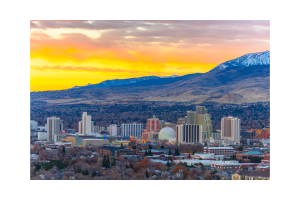When you start shopping for houses, one of the first things you’re going to run into is neighborhoods that are managed by homeowners associations. HOAs can be a great way to keep property values high, and they can offer some fantastic perks. But they can also place some serious restrictions on neighborhoods and what you can do with your property.
Before you buy a home, it’s a good idea to see what you can expect from the HOA there. Read on to learn more about your KWS Homeowners Association HOA and what questions you should ask before you buy.
1. Fees Can Vary
One of the most important things to know about HOAs before you buy a house is that fees can vary wildly. In some cases, HOA fees will depend on the overall geographical region you’re buying the house in. In other cases, these fees can vary depending on the specific neighborhood you’re buying in.
In general, HOA fees are somewhere between $200 and $300 per month. However, those costs could range from less than $100 a month to more than $1,000 in the most expensive areas. You need to account for these costs when planning the budget for your home.
2. Amenities Vary
Given how widely HOA fees can range, it should come as no surprise that the amenities you get with those fees can vary, too. Of course, the most expensive HOAs are going to provide you the most amenities as part of the contract. The less you pay, the fewer benefits you’re going to get from the organization.
Some of the more expensive HOAs may offer a public pool, tennis courts, a clubhouse, security, and even some lawn maintenance services. Lower-cost HOAs may only regulate property décor to keep property values in line.
Make sure to read the bylaws closely to see what your KWS Homeowners Association HOA covers.
3. There May Be Additional Fees
Once you’ve paid your HOA dues, you may think your financial obligation to the organization is done. After all, your HOA fees are designed to cover all services and amenities the organization provides, right?
But depending on how your HOA is organized, you may have to pay other, less routine fees when maintenance needs come up.
Some HOAs keep monthly fees low by relying on a smaller cash reserve to meet their routine expenses. However, this means that when HOA-related maintenance or repairs arise, you may have to pay for part of these costs. It’s a good idea to clarify before you buy the house which setup your HOA will use.
4. Covenants Matter
Of course, one of the biggest parts of living in an HOA is following the covenant guidelines. As with the fees and the amenities, covenant rules can vary widely among associations. Some HOAs may be more lenient in their guidelines, while others may be more particular than you’re willing to deal with.
It’s important to read the HOA covenant before you buy a house in that neighborhood. As we’ll discuss in a moment, sanctions can be serious business, and you don’t want to find yourself on the wrong side of your HOA.
If you read the covenant ahead of time, you’ll know what to expect and will be able to decide if those guidelines will work for you.
5. Sanctions Are Serious
If you fail to follow the covenant guidelines for your HOA, there will be consequences. At first, you may get verbal or written warnings, or you could be formally written up. If you continue to refuse to comply with the rules, you could wind up getting fined or sanctioned by the HOA.
If you refuse to pay your dues or fines, some HOAs have the ability to place a lien on your home. Some organizations can even foreclose on your house if you refuse to follow their guidelines or pay your dues. Make sure you know what the consequences will be if you fail to follow HOA rules, and how long it will take for those consequences to kick in.
6. You May Share Insurance Responsibilities
Depending on what sort of housing development you’re buying in, you might share insurance responsibilities with your HOA. This is particularly common in condos and other living spaces that have shared public areas, including gyms and swimming pools.
In general, HOAs cover the insurance responsibilities for these areas and may be responsible for part of your property.
Some HOAs offer additional insurance coverage on your property as an incentive to buy within that development. Make sure to look at your HOA bylaws and see if any such incentives apply in that development.
It’s also a good idea to see where the boundaries on their insured responsibilities stop, so you don’t wind up paying out of pocket for something that isn’t covered by either party.
7. Reputation Counts
When you’re shopping for a home within HOA developments, it’s important to look at the HOA’s reputation. While many HOAs are managed by residents in the community, some developments hire out these responsibilities to professional HOA companies. These companies may not have the neighborhood’s best interests at heart or may not handle their responsibilities well.
If possible, talk to a resident of the neighborhood you’re looking at and ask how they feel about the HOA. Do they have problems with overly nitpicky regulations and heavy-handed sanctions? Or do they feel the HOA does a good job of maintaining strong amenities for the community and keeping property values high?
Learn More About Homeowners Associations
Homeowners associations can be a great way to keep communities thriving and include more amenities in a neighborhood. But it’s also a good idea to know what you’re getting into before you buy, especially if you’re considering renting the property out.
Read the HOA bylaws and covenants, ask about fees, and talk to current residents about how well the HOA does its job.
If you’d like to learn more about your KWS Homeowners Association HOA, check out the rest of our site at Rent Safe. We’re a new online tenant screening platform custom-designed by property managers for peace of mind.
Contact us today and discover tenant screening that has never been more organized, transparent, or easier.








